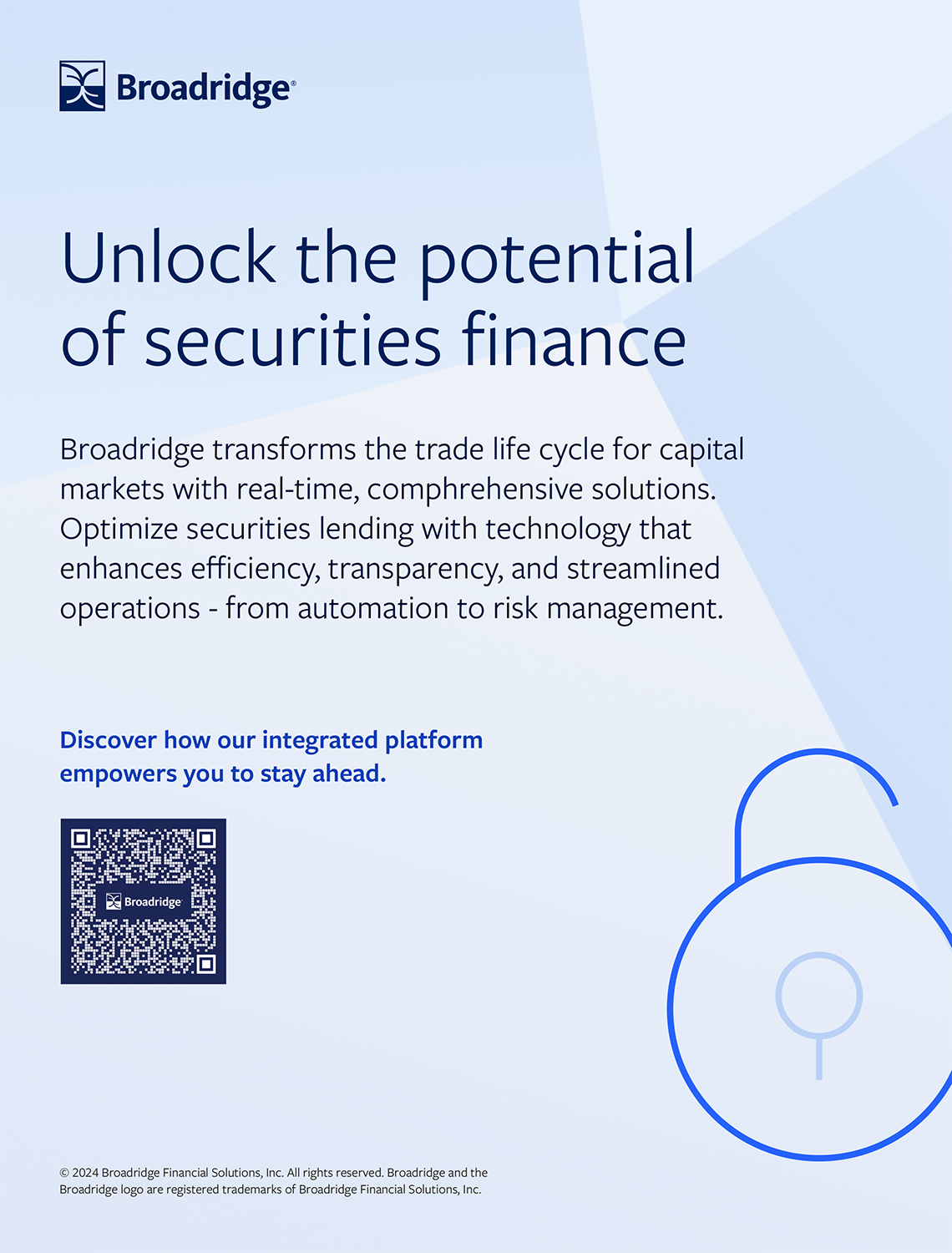DTCC publishes CBDC pilot findings
30 November 2022 US
 Image: interstid
Image: interstid
DTCC has published the findings of its pilot programme investigating how tokenised securities and a wholesale central bank digital currency (CBDC) would operate in the US settlement infrastructure. The project was led in collaboration with the Digital Dollar Project.
‘Exploring Post-Trade Security Settlement with a US Central Bank Digital Currency’ found that multilateral settlement and asset encumbrance mechanisms are essential parts of CBDCs’ designs. Interoperability between different networks was also raised as an essential consideration.
The pilot, originally called Project Lithium, was supported by Accenture, which provided a simulated CBDC network for DTCC to test their digital settlement network prototype against tokenised dollars. Participants included Bank of America, Citi and Northern Trust, amongst several other leading firms.
The system connected two asset networks to enable CBDC security settlements, with communication dependencies between the two reduced and counterparty risk eliminated. The pilot additionally assessed network governance, with administrators able to resolve transactional issues if they arose.
Looking to future developments, access to a digital Federal Reserve payments system was highlighted as something that could prompt innovation and opportunity in the sector, with the use of a CBDC network expected to improve firms’ efficiency, transparency and reporting.
The paper also looks at where the industry can go from here, outlining adoption rates, implementation costs and potential governance models.
Jennifer Peve, managing director at DTCC, says: “As a potential digital alternative to cash, a US CBDC should be carefully explored in consultation with key stakeholders across the public and private sectors. The results of the pilot can help inform market participants and US policymakers about the many requirements related to this new technology and currency paradigm.”
Jennifer Lassiter, executive director of the DDP, adds: “The findings from this pilot serve as crucial information to inform worldwide CBDC developments and conversations that are rapidly increasing across sectors. Understanding the impact of CBDC technology on this critical aspect of financial market infrastructure is imperative to the evolution of US markets and will inform further CBDC research and experimentation globally."
‘Exploring Post-Trade Security Settlement with a US Central Bank Digital Currency’ found that multilateral settlement and asset encumbrance mechanisms are essential parts of CBDCs’ designs. Interoperability between different networks was also raised as an essential consideration.
The pilot, originally called Project Lithium, was supported by Accenture, which provided a simulated CBDC network for DTCC to test their digital settlement network prototype against tokenised dollars. Participants included Bank of America, Citi and Northern Trust, amongst several other leading firms.
The system connected two asset networks to enable CBDC security settlements, with communication dependencies between the two reduced and counterparty risk eliminated. The pilot additionally assessed network governance, with administrators able to resolve transactional issues if they arose.
Looking to future developments, access to a digital Federal Reserve payments system was highlighted as something that could prompt innovation and opportunity in the sector, with the use of a CBDC network expected to improve firms’ efficiency, transparency and reporting.
The paper also looks at where the industry can go from here, outlining adoption rates, implementation costs and potential governance models.
Jennifer Peve, managing director at DTCC, says: “As a potential digital alternative to cash, a US CBDC should be carefully explored in consultation with key stakeholders across the public and private sectors. The results of the pilot can help inform market participants and US policymakers about the many requirements related to this new technology and currency paradigm.”
Jennifer Lassiter, executive director of the DDP, adds: “The findings from this pilot serve as crucial information to inform worldwide CBDC developments and conversations that are rapidly increasing across sectors. Understanding the impact of CBDC technology on this critical aspect of financial market infrastructure is imperative to the evolution of US markets and will inform further CBDC research and experimentation globally."
NO FEE, NO RISK
100% ON RETURNS If you invest in only one securities finance news source this year, make sure it is your free subscription to Securities Finance Times
100% ON RETURNS If you invest in only one securities finance news source this year, make sure it is your free subscription to Securities Finance Times



